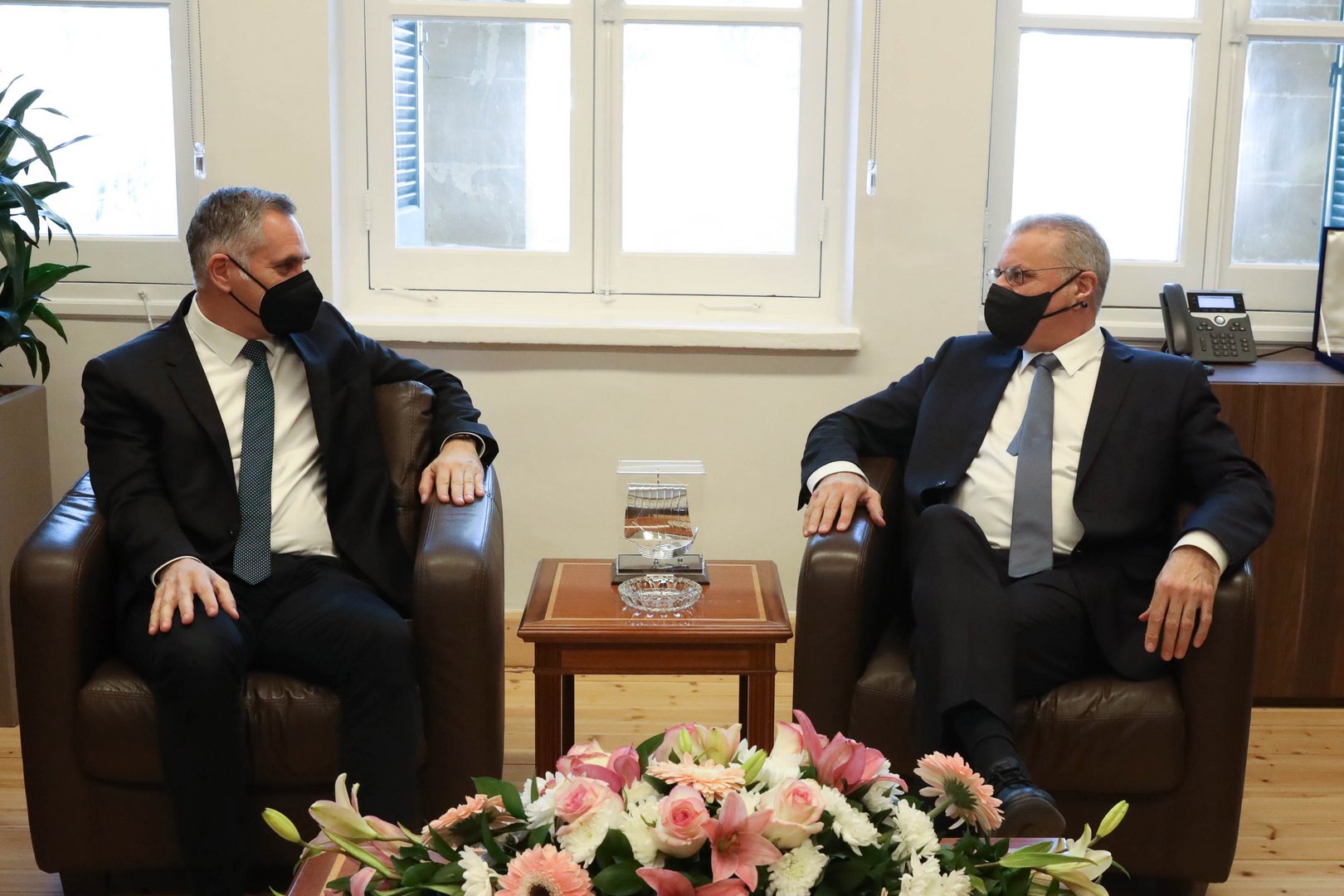Nearly 400 migrants have been sent home since January 1 as Cyprus steps up efforts to address the influx of irregular arrivals by maximising returns and better monitoring the green line, Interior Minister Nicos Nouris said on Wednesday.
He was speaking to reporters after briefing Diko president Nicolas Papadopoulos on migration in the first of a round of meetings with parliamentary parties on the issue.
As Cyprus increasingly looks to returns to alleviate pressure from migration, Nouris said he wanted to hear ideas from parties on how to enhance this effort.
“Migration is not the issue of the interior minister or the current government. It is a national issue and must be dealt with as such,” he said.
The meeting came only two days after Nouris signed a historic memorandum of understanding with the EU Commissioner for Home Affairs Ylva Johansson which covered increasing first reception capacity, timely asylum procedures, effective integration and improved efficiency of returns.
Nouris said he had briefed Papadopoulos on the agreements. Parties would be fully informed so that there are no questions left hanging as to authorities’ plan of action.
With the overwhelming number of irregular migrants entering through the green line, all coming from Turkey which is instrumentalising the issue, emphasis will be given to better monitoring, he said.
The second main pillar is returns which is covered in the MoU. Even before the MoU was signed, Cyprus has in the 40 days since January 1 returned 388 people – including 85 to India, 43 to Congo, 34 to Bangladesh, 31 to Cameroon, 25 to Nigeria and 21 to Iran.
“Our objective is that those whose applications are deemed clearly baseless be returned,” he said. Nouris said he had asked Papadopoulos that he and his party contribute at a diplomatic level to open channels of communication with those third countries for which there is no such contact.
As to the green line, he had briefed Papadopoulos on what steps were planned to stop or contain the inflow. He did not elaborate.
Asked whether Pournara, the overcrowded reception centre at Kokkinotrimithia, would be expanded, he said the aim was not to turn Cyprus into one large reception site.
“Our aim is to minimise the inflow and increase the outflow, so that numbers return to their pre-crisis levels,” he said, with Pournara hosting 500 to 1000 people, the capacity for which it was built, and not the current 2,500.
The target is to bring the number of asylum seekers and those granted international protection as a proportion of the population to the same levels as other frontline states of the EU. In Greece, Spain, Italy, and Malta the figure is below 1 per cent, whereas in Cyprus it is 4.6 per cent and rising, he said.
Papadopoulos said that Cyprus had first had experience of what being a refugee meant and wanted to offer support and hospitality to genuine asylum seekers.
But it was also important to recognise that per capita Cyprus currently has the biggest problem in the EU. “We know that a lot of people currently abuse the system for economic reasons,” he said. Cyprus must provide services to genuine cases, comply with EU and UN norms, but also protect the money of Cypriot taxpayers from possible abuse.
He credited the minister for his efforts and assured him that Diko will continue to take a constructive stand.







Click here to change your cookie preferences